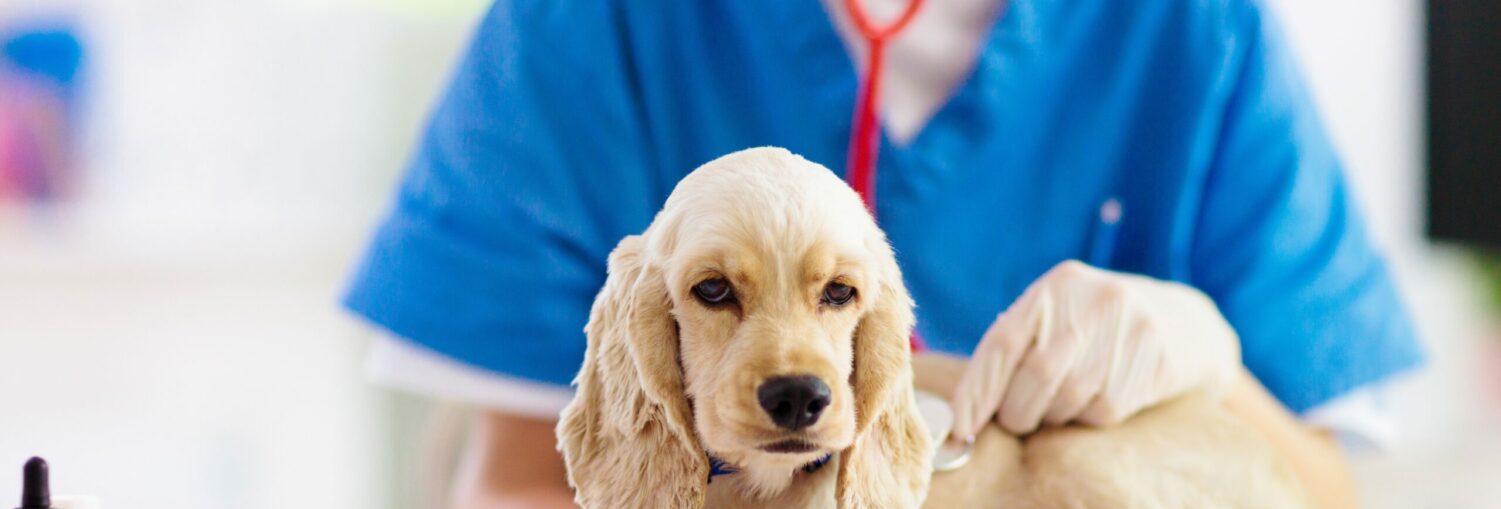Seven Tips for Raising a Healthy Dog
Seven great tips for helping you dog maintain good health.
1. “Mens sana in corpore sano” – healthy mind in healthy body: Well, “corpore sano in mens sana” is just as true. Like in humans, the physical health of pets is directly affected by their mental health. If your dog is expressing abnormal or undesirable behaviors, if you find yourself frequently mad at your dog or reprimanding him… if he pulls at the leash and is hard to walk, if he runs away, if he’s aggressive or constantly barks, is always stealing food or begging at the table, having recurrent toilet mishaps, etc., etc., you should really be seeking professional help. Start at your veterinary clinic and they will be able to help you find the best solution. Your dog should be bringing you joy and he should be happy as well. If this is not the case, don’t give up seeking help until you’re both happy.
2. “Prevention is better than cure” (Desiderius Erasmus) – every puppy should receive his first puppy shots no later than the age of six weeks. It is important to stick to the vaccination regiment prescribed by the veterinarian. Adult dogs should receive booster shots once a year. Canine vaccinations protect dogs from diseases that can be fatal. Rabies shots are mandated by law, because rabies can be passed to humans and is incurable. In addition, you should take your dog to the vet whenever you are concerned about his health. This includes any unexpected behavioral changes, unexplained weight changes, lameness, skin lesions, excessive vomiting and/or diarrhea, coughing, or any other major change in health. It’s worth considering subscribing to a medical insurance plan, so that you don’t have to deliberate about a clinic visit because of cost. Regardless of the abovementioned recommendations, schedule an annual check-up even if your dog feels fine. For elderly dogs this should be done twice a year.
3. Anti-parasite treatment – many tiny, nasty and opportunistic creatures are interested in parasitizing your dog. Fleas, ticks, mites and worms are not only a nuisance, but some of them can also transmit serious diseases. There is no true preventive vaccine against parasites, but there are effective treatments, that when used regularly, will kill parasites before they can cause a problem. Regardless of where you purchase anti flea, tick and worm products, always consult your veterinarian first.
4. “No disease that can be treated by diet should be treated with any other means” (Maimonides). One of the major differences between wild and domesticated canines us the fact that as opposed to your dog’s cousins in the wild, he can’t hunt for himself. Everything your dog eats is provided by you, his owner. That is why choosing your dog’s diet is an enormous responsibility. High quality commercial dog foods are complete and balanced. This means that the food contains everything your dog needs in a perfect balance according to his age. Besides chocolate and onions (and for some dogs, grapes and raisins), which can be poisonous to dogs, you can give your dog anything you yourself would eat. Then why not do that? Why buy a commercial diet? Can’t our dog just share our meals? The answer is, that the probability that your dog will receive everything he needs through your diet, is extremely slim. Complete and balanced commercial diets, on the other hand, contain everything dogs need and can be fed exclusively with peace of mind. If we do want to share our food with our dog, we can do that, but make sure that at least 85% of his calories are from a complete commercial diet. In addition, it is important to provide your dog with a diet that is designed for his needs. There are diets for puppies, diets for dogs living in the city, diets for overweight dogs, diets for working dogs, etc.
5. Physical fitness – all dogs need regular exercise. The amount of exercise a dog needs can depend on breed. Regardless, all dogs require at least 45-60 minutes of physical activity every day. Of course, a dog who jogs with his owner doesn’t need as long a workout compared to a dog who walks with his owner. Dogs who don’t get sufficient exercise have a higher chance of developing obesity and its related diseases, including skin disorders, joint problems, diabetes, heart disease and more. If your lifestyle doesn’t enable you to provide your dog with the physical activity he deserves, you might want to consider hiring a professional dog walker.
6. Spaying/Neutering – If your dog is not a pure breed dog intended to be bred professionally, it is recommended that you take him or her to the veterinarian to be neutered or spayed. Dogs that have been spayed or neutered are generally healthier, if you make sure your dog doesn’t develop obesity (a common risk among spayed and neutered dogs). All diseases associated with reproductive organs are eliminated: endometritis, various types of cancer, prostate disease and perineal hernias in males, and more. In addition, spayed and neutered dogs have a lower chance of becoming harmed by sexual activity related hazards, including accidents while roaming and aggression.
7. Basic Safety:
• Do not allow your dog to wander unattended, not only because it is against the law, but also in order to protect him from getting hit by a car, eating poison, becoming engaged in a dog fight, snake bites, falls and more.
• Prevent dehydration and/or heat stroke: always make sure your dog has free access to unlimited amounts of cool, fresh water and plenty of shade. Never ever leave your dog in a closed vehicle, not even for a moment.
• Make sure you are familiar with the closest veterinary emergency center. When you travel with your dog, become familiar with emergency centers at your destination. In emergency situations, the time it takes to locate a vet on duty might account for the difference between getting help in time or too late.















